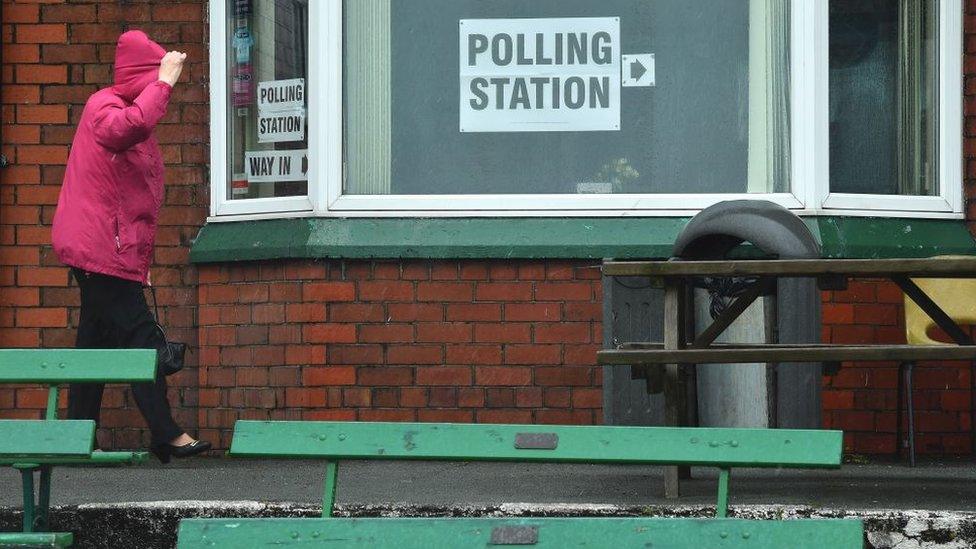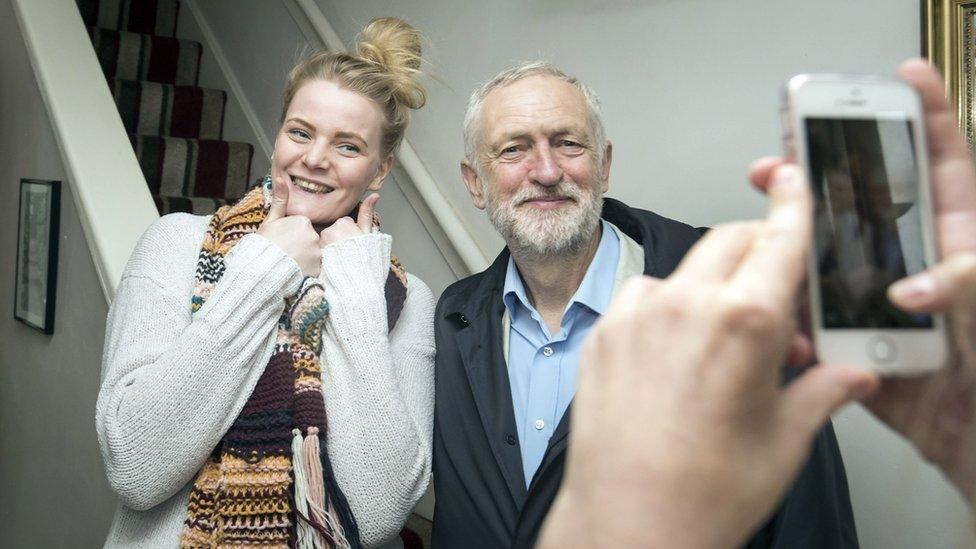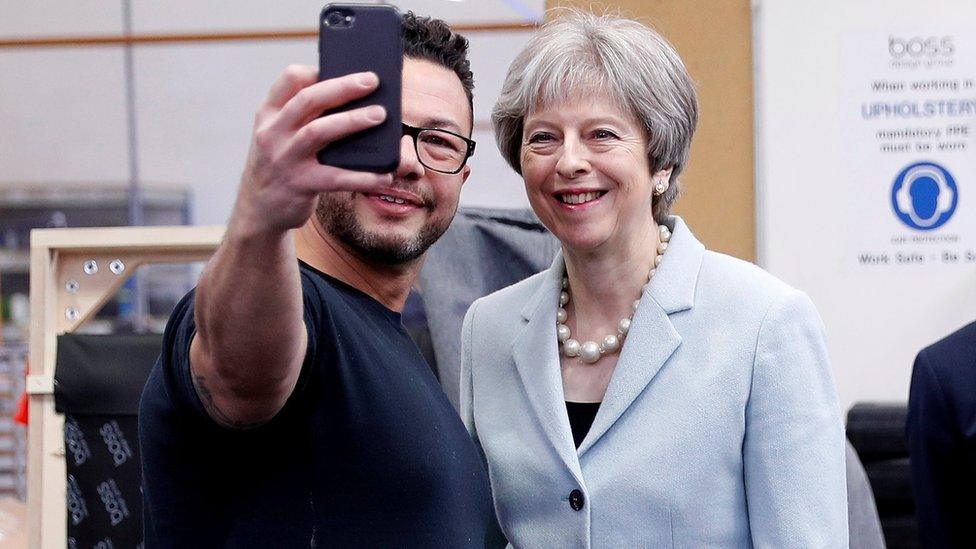Local elections: May and Corbyn clash over council tax
- Published
Jeremy Corbyn and Theresa May attack the record of their rivals about local government services and charges
Theresa May and Jeremy Corbyn have clashed over council tax bills ahead of Thursday's local elections in England.
At Prime Minister's Questions, Jeremy Corbyn said residents "paid more and got less" from Conservative councils.
But Mrs May said some residents in Labour-run Lambeth were paying twice as much council tax as those living in neighbouring Conservative Wandsworth.
A total of 4,371 seats are up for grabs across 150 councils, with six mayoral elections also taking place.
As political parties make a late push for votes, Mr Corbyn said the choice facing voters on Thursday was clear.
He told MPs that council tax bills were rising by an average of 5% across England while public services, such as police numbers, were continuing to be cut.

Mrs May cited Wandsworth council, which has been run by the Tories since the late 1970s but is one of Labour's main targets in London, as an example of how Conservative-run town halls supported communities, protected services and yet kept council tax rises to a minimum.
"No clearer example can there be that Conservative councils cost you less," the PM said.
In the first England-wide test of electoral opinion since last year's snap general election, all council seats in London, Birmingham, Manchester, Leeds and Newcastle are up for election.
In other areas, a third of the seats are being contested.
Most of the seats up for grabs were last contested in 2014, when Labour made more than 300 gains. Jeremy Corbyn's party is defending the highest number of seats - over 2,200 - and will be hoping for a strong showing in London, where it made gains in last year's general election.
The Tories, who are defending about 1,350 seats, will hope to pick up votes in Leave-backing parts of the country. They are hoping UKIP will not match its 2014 performance, when the vote coincided with European elections and the party gained 161 seats.
On Wednesday former Prime Minister David Cameron paid a visit to Tory HQ in London to rally the party's troops.

Jeremy Corbyn poses for a selfie in Grimsby...
The party has previously admitted the elections will be "really difficult", and has claimed it offers "cheaper and better" council services than Labour.
Mr Corbyn has urged voters to show the government that "enough is enough" and that they want a change in direction.
His party has been seeking to dampen down expectations of significant gains, pointing to the strong performance last time around, at a high point in Ed Miliband's leadership.

...As does Theresa May in Dudley
Meanwhile, the Liberal Democrats will be hoping their pledge of another EU referendum will appeal to disaffected Remain supporters.
On the other side of the EU debate, UKIP has struggled since 2014, and its interim leader Gerard Batten told the Daily Politics he would take a vote share of 5-7% in the seats where the party is standing as a "positive".